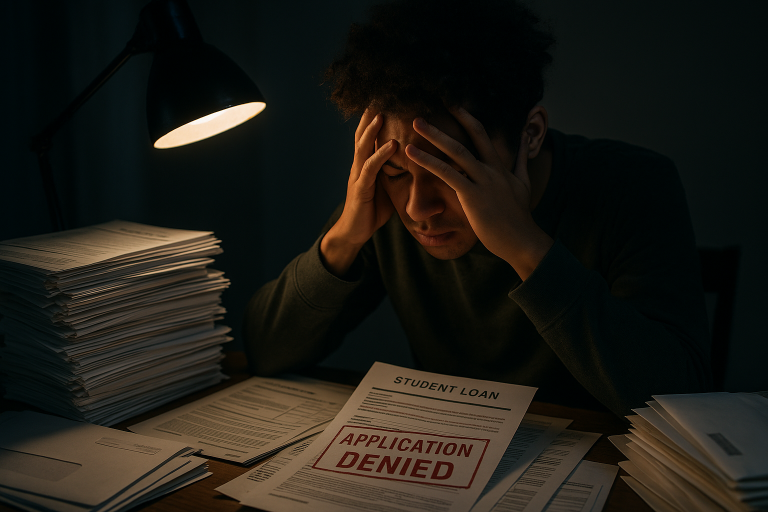Emergencies are as inevitable as they are unpredictable. That's where the concept of an emergency fund comes into play. But in a world where plastic reigns supreme, can credit cards serve as a modern-day lifeline during unexpected financial crises? In this discourse, we delve into the synergy between credit cards and emergency funds, dissecting their pros and cons while navigating the intricate landscape of fiscal responsibility.

Understanding Emergency Funds
At its core, an emergency fund is a financial cushion designed to soften the blow of unforeseen expenses. Whether it's a sudden medical bill, a car repair, or even a job loss, having a safety net can prevent a financial hiccup from escalating into a full-blown crisis. An emergency fund buys you the precious gift of time, allowing you to regroup without resorting to high-interest loans or strained credit cards.
Credit Cards as a Financial Tool
Credit cards have transformed the way we manage money. With just a swipe or a tap, they offer unparalleled convenience and flexibility. They seamlessly handle day-to-day transactions, sparing us the need to carry wads of cash. But can they don the cape of an emergency rescue?
Pros of Using Credit Cards for Emergencies
Immediate Access to Funds: In times of urgency, credit cards provide instant access to funds. The financial cushion they offer can be a sigh of relief when faced with unexpected bills.
Potential to Earn Rewards: Many credit cards come adorned with rewards and cashback. Picture this: funding emergencies while accumulating points for your next vacation.
Built-in Consumer Protection: Credit cards often provide consumer protection and insurance. Did that gadget you bought on impulse malfunction? Your credit card might have your back.
Convenience for Online and International Transactions: Credit cards facilitate online shopping and international transactions with ease. During emergencies, the ability to purchase essential items remotely can be a game-changer.
Cons of Using Credit Cards for Emergencies
Accruing High-Interest Debt: The sly devil hiding behind the credit card is high-interest debt. Mishandling credit cards during emergencies can lead to a snowball effect of mounting dues.
Risk of Overspending: Credit cards tempt us to spend beyond our means. In the face of an emergency, emotional spending can blur the lines between necessities and indulgences.
Dependence on Credit Availability: Emergencies can strike when credit limits are low. Relying solely on credit cards means you're at the mercy of your available credit.
Possibility of Damaging Credit Score: Maxing out your credit card or missing payments can inflict lasting wounds on your credit score, affecting future financial endeavors.
Analyzing the Combination: Credit Cards and Emergency Funds
Credit cards and emergency funds need not be adversaries; instead, they can be allies in financial battles. By smartly wielding credit cards and strategically deploying emergency funds, you can mitigate the cons while amplifying the pros.
When crafting an emergency fund strategy, consider your income, expenses, and lifestyle. The size of your fund should provide a sense of security without causing financial strain. Keep it accessible but not overly tempting.
Building a Solid Emergency Fund
Determining the size of your emergency fund is no one-size-fits-all equation. It depends on variables like your monthly expenses, job stability, and risk tolerance. Typically, three to six months' worth of expenses are advisable.
Where you store your emergency fund matters too. A high-yield savings account or a money market account can offer both accessibility and a bit of growth.
Selecting the Right Credit Card
Choosing a credit card tailored to your needs is pivotal. Compare interest rates, annual fees, and rewards programs. A low-interest card might be your saving grace during emergencies.
Using Credit Cards Wisely in Emergencies
The key to successful credit card utilization in emergencies lies in discipline. Pause, evaluate, and differentiate between needs and wants. Set up a concrete repayment plan to squash that high-interest debt before it mushrooms.
Monitor your credit utilization ratio—the percentage of your credit limit you're using. Keeping it under 30% can prevent potential credit score damage.
Emergency Preparedness and Financial Planning
In a world of uncertainty, a comprehensive financial strategy is your best armor. Alongside an emergency fund and credit cards, insurance is another critical component. Health, home, and auto insurance can prevent unexpected expenses from spiraling out of control.
Case Studies: Successful and Unsuccessful Scenarios
Consider Jenna and Alex, both facing car repairs. Jenna used her well-funded emergency fund, while Alex leaned heavily on his credit card. Jenna sailed through her crisis, while Alex's debt accumulated, leading to financial stress. The verdict? Prudent planning trumps reliance on plastic.
Navigating Sudden Financial Crises
When financial storms hit, take a deep breath. Prioritize your expenses, tapping into your emergency fund first. If you need to resort to credit cards, do so with a well-laid repayment plan. Once the crisis abates, focus on rebuilding your emergency fund.
Conclusion
Credit cards can indeed play a role in emergency funds, but this partnership requires finesse. Balancing the pros and cons entails astute financial acumen. By wielding credit cards responsibly, leveraging emergency funds smartly, and embracing comprehensive financial planning, you can weather any fiscal tempest unscathed.
FAQs After The Conclusion
- Can I rely solely on credit cards instead of having an emergency fund? While credit cards can offer immediate financial assistance, solely relying on them is risky. An emergency fund provides a safety net without the burden of high-interest debt.
- How can I prevent overspending when using credit cards for emergencies? Establish a strict budget for emergencies and stick to it. Distinguish between necessities and desires to avoid impulsive spending.
- Will using a credit card during emergencies always lead to high-interest debt? Not necessarily. Using a credit card wisely, repaying the balance promptly, and taking advantage of low-interest options can mitigate the risk of accruing high-interest debt.
- What's the best way to rebuild my credit score after mismanaging credit card usage? Consistently make on-time payments, reduce outstanding balances, and practice responsible credit usage. Over time, these actions can help improve your credit score.
- Are there specialized credit cards designed specifically for emergency situations? While there are no credit cards exclusively for emergencies, some cards offer features like low-interest rates or promotional periods that can be beneficial during unexpected financial challenges.


